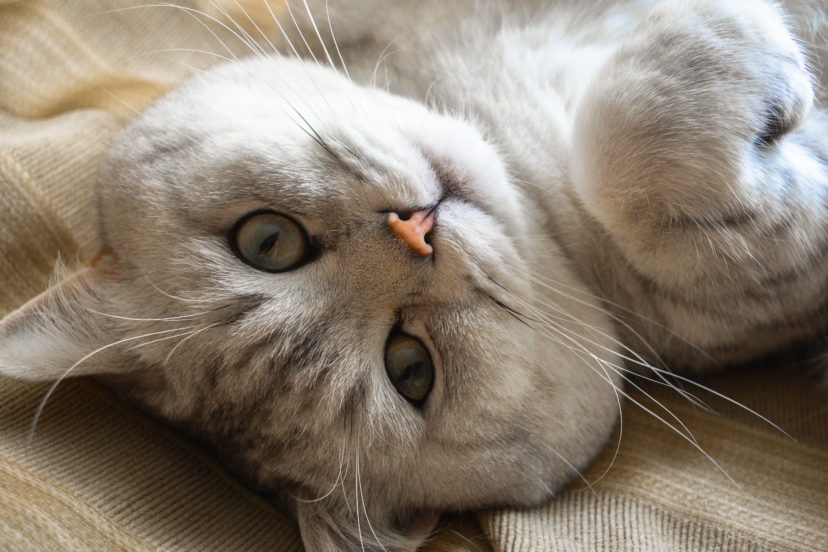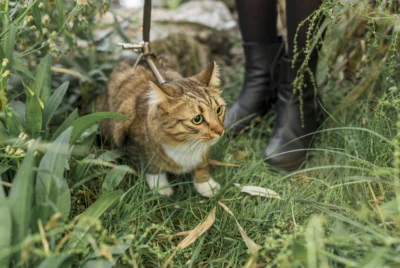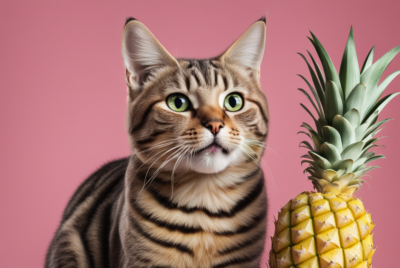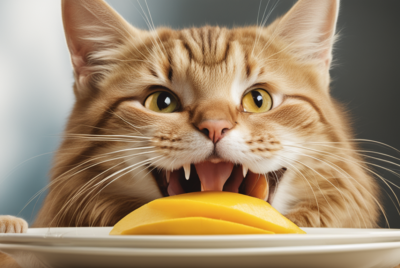Why Are Cats’ Noses Wet? The Secret Behind Kitty’s Super Sniffer
Ever given your cats a gentle boop on the noses, only to find it surprisingly cool and wet? You’re not alone! Most cat owners have noticed their furry companions sporting a perpetually wet nose. But have you ever wondered what the science is behind this fascinating feature?
Why Cats Have Wet Noses
Cats are naturally equipped with wet noses, thanks to special nasal glands located inside their nasal cavity. These glands constantly produce a thin, watery fluid that coats their nose, keeping it moist and functional. This natural moisture plays several vital roles for our feline friends:
- Enhanced Sense of Smell: Like detectives, cats rely on clues to understand the world around them. Their wet nose helps in detecting smell as it acts like a magnet, attracting tiny scent particles from the air. The more moisture, the better they can “smell” what’s going on, just like you can see things clearer with a clean pair of glasses!
- Temperature Regulation: Unlike humans who sweat all over, cats have a sneaky way of staying cool. The moisture on their nose evaporates, like water drying in the sun, creating a refreshing effect. It’s like a built-in air conditioner helping them stay comfortable!
- Healthy Moisture: The wetness on their nose isn’t just there for fun, it keeps their nose healthy too. It acts like a shield, protecting them from dryness and irritation, just like we use lotion to keep our skin healthy. A healthy nose means a happy cat!
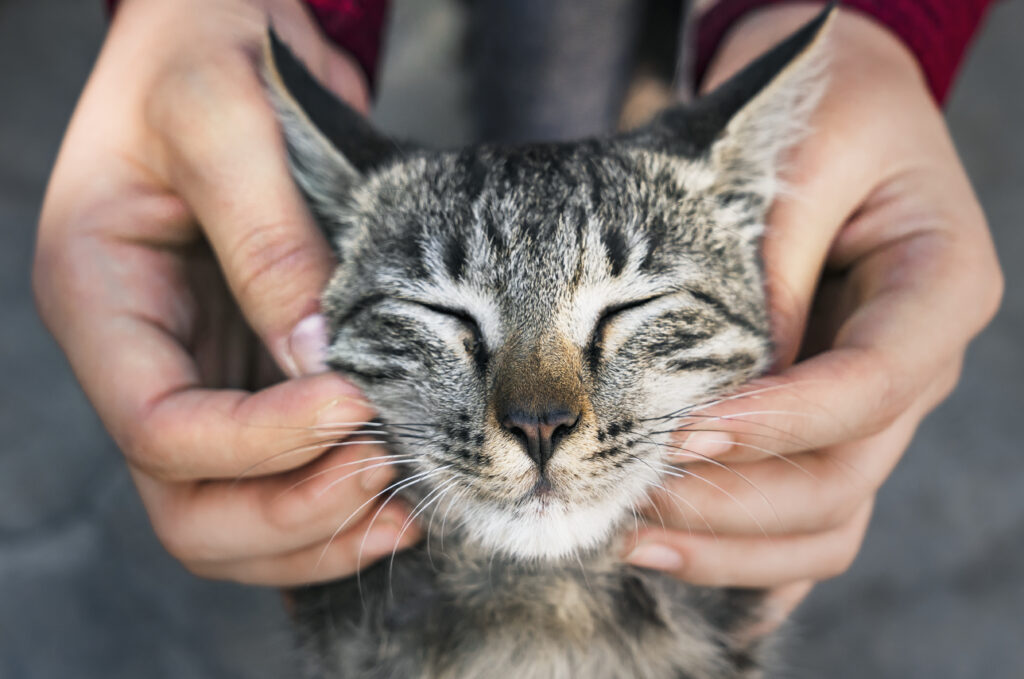
How Moisture Aids Olfaction
Imagine tiny scent particles floating in the air, like invisible dust. Cats, with their cool, wet noses, are like super smellers able to pick up on these particles better than us. Why? Because the moisture acts like a magic magnet, attracting these scent particles and bringing them closer to special scent receptors in their nose.
It’s like adding a sticky coating to your hand to grab more glitter – the wetter the nose, the more “glitter” (scent particles) they can catch! This extra wetness helps cats understand their world through smell, just like we use our eyes to see.
When to Be Concerned
While a wet nose is typically normal and a sign of good healthy pets, some variations might warrant a closer look. Here’s what you should know:
Dry Nose vs. Wet Nose
While a wet nose is usually a good sign in cats, it’s important to remember that the wetness can change throughout the day. Things like the air around them, how active they are, and even their habits can make their nose a little drier sometimes. It’s like a garden – sometimes it needs more water, and other times it’s just fine.
Similarly, a wetter nose does not necessarily indicate any cat’s health issues. However, a very wet nose accompanied by sneezing, coughing or other signs or symptoms may indicate upper respiratory infection.
If it’s always that your cat’s nose is dry and cracked, that could be a sign they’re not feeling well. It could be because they’re not drinking enough water, they have allergies, or they even have a cold. If that happens, take them to the vet to get them checked out. They can help your kitty feel better and get their nose nice and wet again!
Runny Nose vs. Wet Nose
Slightly wet noses are normal for your feline friend, but runny noses might be a sign of trouble. Just like a leaky faucet, a little drip isn’t a big deal, but a constant flow needs attention.
If you notice your cat’s nose is constantly runny, especially with other symptoms like sneezing, coughing, or eye discharge, it’s important to see your veterinarian. They can help diagnose the cause and get your kitty feeling better. Remember, a healthy cat usually has a cool, slightly wet nose, so keep an eye out for any changes!
Recognizing the Nuances
While a wet nose is generally a good sign, understanding the various nuances of wetness and dryness can help you identify potential concerns. Here’s a breakdown of some factors to consider:
- Degree of Wetness: A slightly damp or cool nose is typical. However, excessive wetness, especially accompanied by other symptoms, might warrant a vet visit.
- Changes in Wetness: Pay attention to any sudden or significant changes in your cat’s usual level of wetness. This could indicate underlying issues.
- Environmental Factors: Dry air, hot weather, or exposure to irritants can contribute to a drier nose. Conversely, humid environments might lead to a wetter nose.
- Individual Differences: Some cats naturally have wetter noses than others, and this can vary based on breed and individual characteristics.
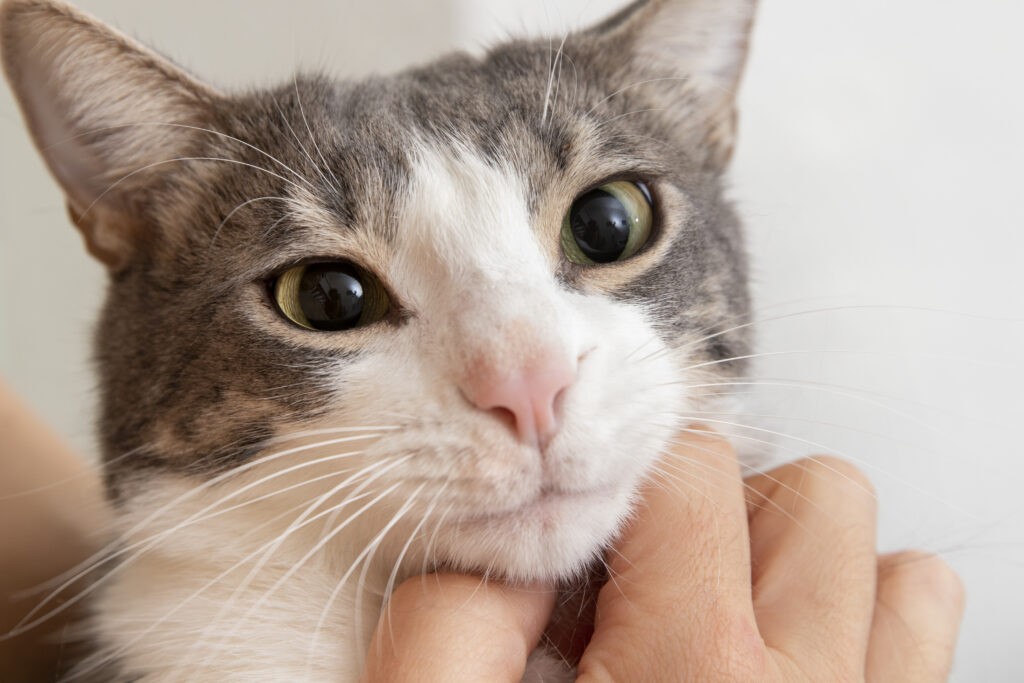
Why Some Noses Might Be Wetter
Did you know that even among cats, there can be some variation in nose wetness? It’s true! While most cats have cool, damp noses, some might seem a bit drier or wetter than others. This can sometimes be due to:
- Face shape: Cats with squished-in faces, like Persians, might have less space for moisture to spread, making their noses feel drier.
- Grooming routine: Breeds with lots of fur, like Maine Coons, might get their noses wiped more often during grooming, making them seem a bit drier compared to less fluffy friends.
Remember, these are just general ideas, and every cat is special! The most important thing is to know what’s normal for your own furry friend and watch for any big changes in their nose wetness. If you’re ever worried, your vet is always happy to answer your questions and give your kitty a check-up!
Also read: Top 10 Warning Signs When Introducing Cats
When in Doubt, Consult Your Veterinarian
If you have any concerns about your cat’s nose, including:
- Changes in wetness or dryness
- Cracks, crusting, or discoloration
- Runny nose, especially with other symptoms like sneezing, coughing, or eye discharge
- Warm or dry nose
Always prioritize seeking professional advice from your veterinarian. They can accurately diagnose any potential health issues and recommend appropriate treatment plans. Early detection and intervention are crucial for maintaining your cat’s overall health and well-being.
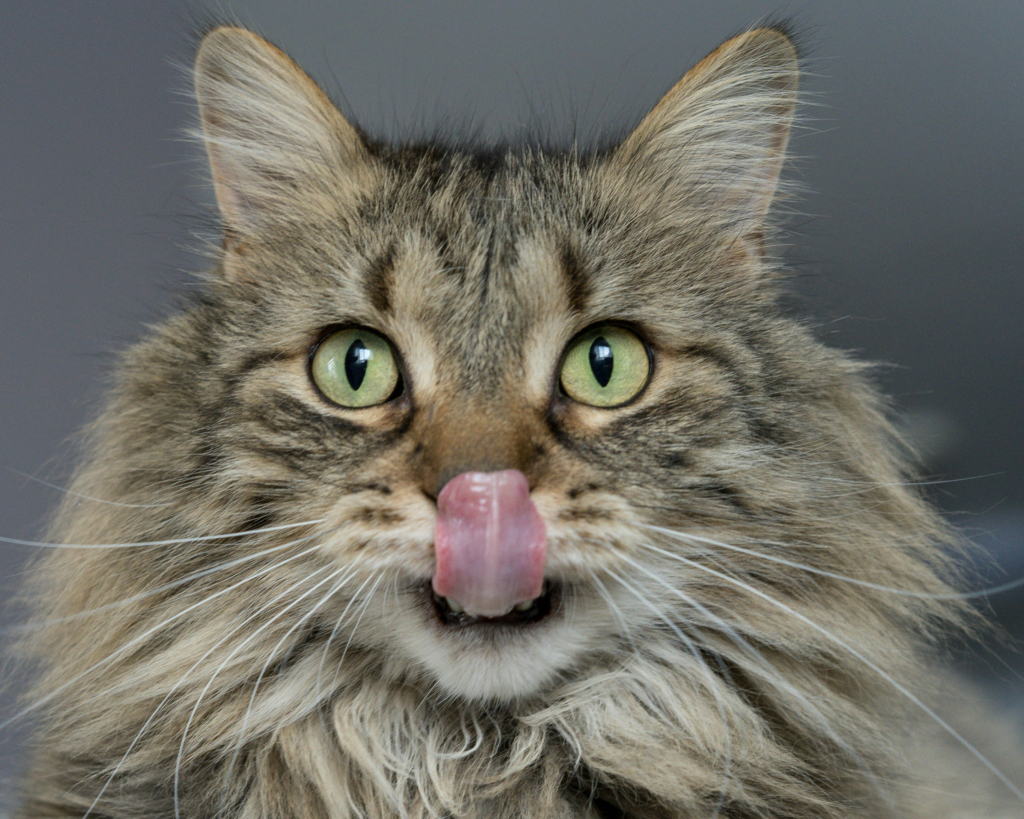
Keeping Your Cat’s Nose Healthy
As responsible pet owners, it’s important to be aware of any changes in your cat’s well-being. Here are some ways to keep your feline friend’s nose healthy:
- Monitor Your Cat’s Nose: Regularly give your cat’s nose a quick check. Look for any changes in wetness, color, or texture. If something seems off, talk to your vet. Think of it like checking your car engine – any unusual signs might mean a trip to the mechanic!
- Hydration is Key: Cats need fresh water all the time. Consider using a water fountain to make it more fun for them to drink, especially if they eat dry food, which can be drying. Imagine your cat like a plant – they need water to stay healthy, and their nose needs it too!
Wet food promotes hydration. This can help keep cats naturally moist in the nose. Consequently;y, cats tend to have drier noses if they don’t frequently drink water.
- Balanced Diet: Talk to your vet about a balanced diet for your cat. The right food has all the nutrients they need to stay healthy, including keeping their nose happy. Just like we need good food to feel good, so do our furry friends! Your pet’s nose is one good indicator of good health.
A Holistic Approach to Cat Care
While a wet nose is a fascinating and essential part of a cat’s life, it’s crucial to remember that it’s just one indicator of their overall health. A moist nose traps microscopic scent particles aiding their olfactory functions. Be observant of any other changes in your cat’s behavior, appetite, activity level, or other symptoms like weight loss.
If you have any concerns, always prioritize seeking professional advice from your veterinarian. They can accurately diagnose any potential health issues and recommend appropriate treatment plans. Imagine your cat as a complex machine, needing all parts to function smoothly. Their wet nose is just one crucial component, but it’s important to be mindful of their entire system for optimal well-being.
Here are some additional factors to consider:
- Environmental Factors: Dry weather or exposure to heat sources can contribute to a drier nose. This may also contribute to a warm nose. Consider using humidifiers in dry climates and ensure your cat has access to shady areas in hot weather.
Additionally, environmental allergens like dust or pollen can irritate their nasal passages, leading to discharge or sniffing. Regularly cleaning your home and grooming your cat can help minimize these irritants.
- Medical Conditions: Certain medical conditions, like upper respiratory infections, dental problems involving the nasolacrimal duct (the tear duct that drains into the nose), or even kidney disease, can also manifest as changes in nose wetness or discharge. If you notice any concerning signs, consult your veterinarian promptly for a proper diagnosis and treatment plan.
- Age: As cats age, their wetness might naturally decrease. However, any sudden or significant changes should still be evaluated by a vet to rule out any underlying issues.
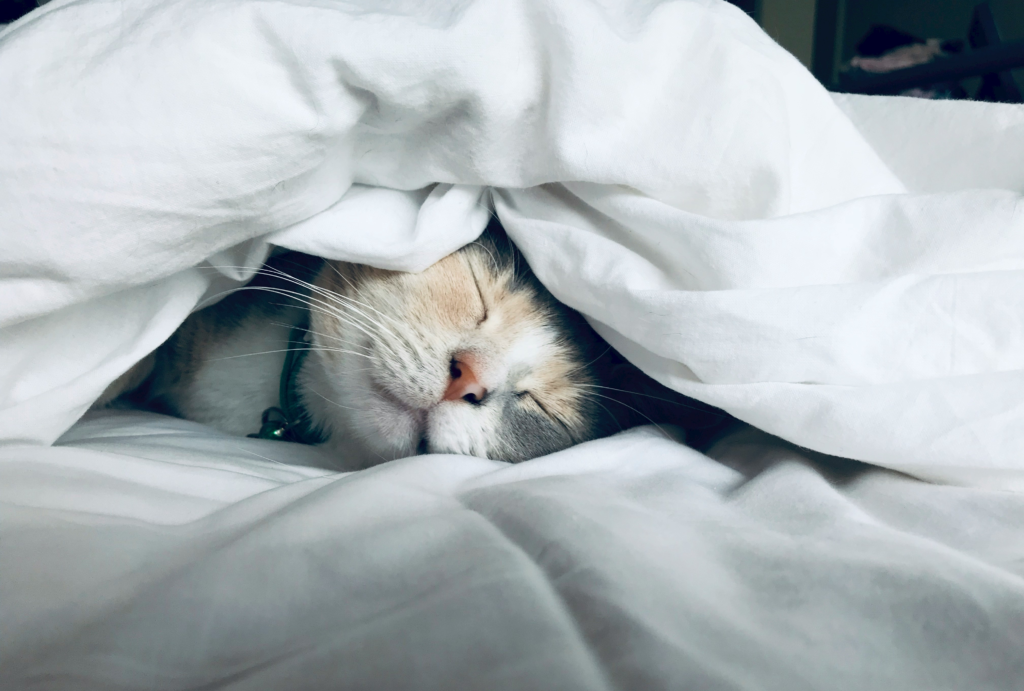
Tailoring Care for Individual Needs
While we’ve explored the general science behind a wet nose, it’s important to remember that every cat is unique. Some naturally have wetter noses than others, and this can vary based on breed, individual differences, and even their daily routines.
Here’s how you can personalize your approach to your furry friend’s well-being:
- Observe and Learn: Pay close attention to your cat’s normal level of nose wetness and any fluctuations that occur. This will help you identify any potential deviations from their baseline.
- Consult Your Vet: If you have any concerns about your cat’s nose, their overall health, or any changes in their behavior, never hesitate to seek professional advice from your veterinarian. Early detection and treatment are crucial for maintaining your cat’s optimal health.
A Wet Nose Means a Happy Cat!
Want to know why your kitty’s nose is always wet and cool? It’s a good thing! Just like how humans sniff things to figure out what they are, cats use their wet noses to smell the world around them. The moisture helps them pick up scents better, kind of like how a sticky trap catches more bugs.
And guess what? A wet nose usually means your kitty is healthy and feeling good. So go ahead, give that nose a gentle boop (if your cat allows it!), and enjoy your furry friend’s special superpower. Take care of your cat, and you can expect many boopable noses, purrs, and happy years together!
Read also: Cat Rolling 101: Why Does My Cat Roll Around on the Floor?

